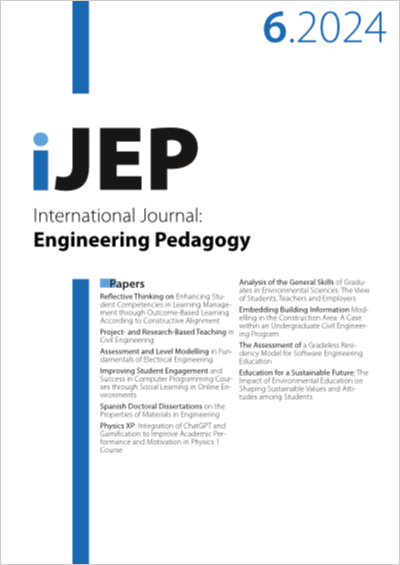The Assessment of a Gradeless Residency Model for Software Engineering Education
DOI:
https://doi.org/10.3991/ijep.v14i6.47187Keywords:
gradeless learning, software engineering, engineering pedagogyAbstract
The traditional practice of assessing academic performance through conventional letter and numerical grades has faced criticism for its limitations in promoting active engagement and curiosity among students. In response, the concept of gradeless education has gained traction, with the aim of fostering a more holistic learning experience. This work explores the implementation of the residency model, a form of gradeless education, in the context of engineering education. The model focuses on skill acquisition and competency demonstration while enhancing student wellness by minimizing assessment-related anxiety that students often face in graded assessments. This study evaluates the effectiveness of the residency model through a comprehensive survey conducted in a software engineering technology program at McMaster University. The survey investigates student perspectives on the model’s impact on motivation, learning experience, and attitudes towards learning. The results reveal a complex interplay of attitudes, with students acknowledging the importance of grades while appreciating the model’s rigorous assignments. The findings suggest that the residency model can encourage transformative learning experiences while warranting ongoing attention to optimize both learning outcomes and student well-being. Further research is recommended to assess the long-term impact and effectiveness of gradeless education models, emphasizing both their benefits and challenges.
Downloads
Published
2024-08-05
How to Cite
Amer, A., Sidhu, G., & Srinivasan, S. (2024). The Assessment of a Gradeless Residency Model for Software Engineering Education. International Journal of Engineering Pedagogy (iJEP), 14(6), pp. 139–154. https://doi.org/10.3991/ijep.v14i6.47187
Issue
Section
Papers
License
Copyright (c) 2024 Adan Amer, Gaganpreet Sidhu, Seshasai Srinivasan

This work is licensed under a Creative Commons Attribution 4.0 International License.



